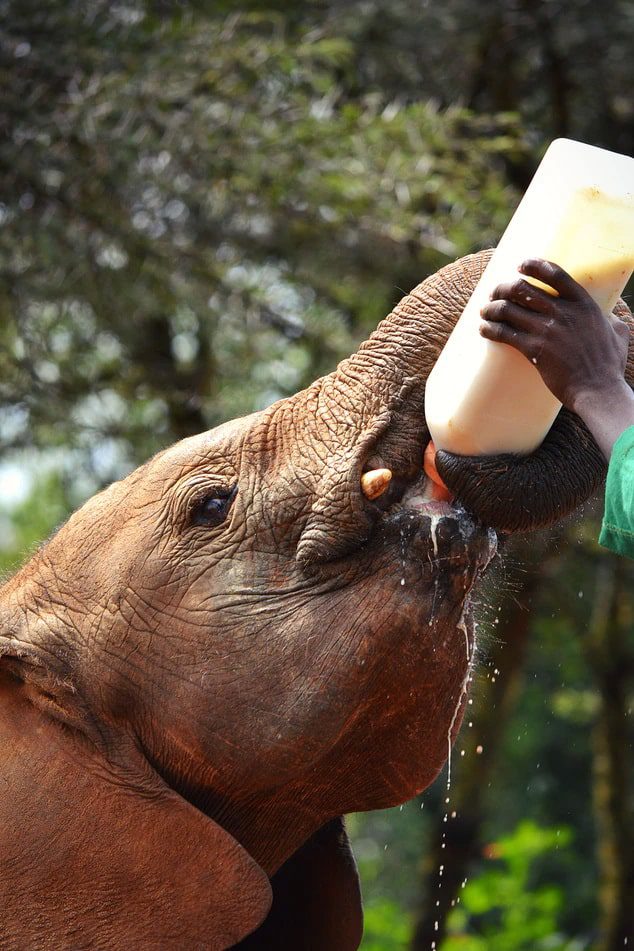
Your guide to sustainable tourism; restoring the balance between exploration and conservation
2020, a year never to be forgotten. Travel and exploration were replaced with lockdowns and curfews, normality felt like a distant dream, and time stood still as a series of unprecedented events unfolded around us. What has been made clear during this time, is our need to getaway, to escape into nature and rejuvenate. We have been reminded of how much we need it, how much we rely on the natural world, and how awful it is when we can no longer access it. When the world opens its doors and we are able to escape into a paradise, we need to remember what it felt like to be isolated away from this paradise. This past year has reminded us of how dependent we are on nature, how we crave the infinite beauty we are surrounded by, and the current urgency to protect and preserve it.
Therefore, when we travel we need to become eco-tourists and join the sustainable tourism movement. The United Nations World Tourism Organisation (UNWTO) defines sustainable tourism as: “tourism that takes full account of its current and future economic, social and environmental impacts, addressing the needs of visitors, the industry, the environment, and host communities”. Thus, sustainable tourism should have economic prosperity benefiting the local communities; social equality respecting the socio-cultural authenticity of these communities; and ensure environmental and cultural protection of the ecological processes, preserving natural heritage and biodiversity.
If you are wondering what steps you can take to be a responsible tourist, then we have collated a few ideas for you which allows you to explore and travel to the places you want to explore, whilst minimizing the negative impacts of tourism, supporting and respecting the local communities, and protecting the surrounding habitats.
Choose eco-friendly accommodation
When looking for your luxury escape, seek out those which are ecologically conscious, harmonizing in their environment, having minimal impact, and benefitting the host communities around them. Look for places that have efficient energy systems; waste management; recycling; have been built with repurposed materials or renewable products; and have locally sourced food. Green hotels are on the rise, and so before you book, have a look to see what eco-certificates your hotel or resort offers, that way you can ensure that you escape to a place that allows for the coexistence of sustainability and your luxury getaway. Going green does not mean camping in the wilderness, you can still enjoy the grandeur of a 5* resort, you just have to ensure it is taking those essential steps to blend with nature and communities surrounding it.

We have picked out a few of our favorite eco-luxury escapes around the world in our article. Or if you want to keep it more local, we have hand-picked you some of our preferred luxury getaways in the US.
Take environmentally friendly products with you
Being more eco-friendly when you travel, involves more than cutting down on plastic and refilling your water bottle. It also means being conscientious with your packing, purchasing products that cause as little harm to the environment and the surrounding marine ecosystems as possible. Consider natural sun creams, soaps, deodorants, shampoos, and conditioners. By choosing natural products, you are protecting our fragile coral reefs by preventing large amounts of toxic chemicals being washed into the water. These chemicals then go on to have devastating effects on our marine habitats, and contribute to coral bleaching. Alternatively, consider buying and seeking out natural products from the local shops, giving back to the local economy.

Counterbalance your air travel by planting trees
When we talk about sustainable tourism, we must acknowledge the elephant in the room; air travel. The aviation industry contributes to 2% of all human-induced carbon dioxide emissions. This puts us in a tight predicament, as we want to travel the world, however, we do not want this exploration to harm it. Therefore, we must counterbalance our flight time and reduce our carbon footprint. You can support tree-planting initiatives such as, One Tree Planted, or Tree-Nation, which plant trees all around the world so that you offset your carbon emissions. We must support these initiatives, as we can create a more balanced world, promoting stability between people and the environment.

Research and ensure animal protection when booking activities
One of the most beautiful things about traveling is appreciating the variety of animals, marine life, and ecosystems that each destination has. However, it is no longer a secret that there are ethical concerns with how animals are treated for the enjoyment of tourists. Elephant riding has recently opened our eyes to the reality of animal exploitation; it is through the process of ‘Phajaan’, or elephant crushing, where these magnificent creatures are starved and deprived of sleep, resulting in their submissiveness to human activities, which then gives us ‘elephant trekking’. Therefore, if you are an animal lover, desperate to see the diverse, incredible creatures that we are blessed with, ensure you find out about the activities and programs before you commit to them; find out how they are run, and ensure that they are ethically and morally just, their welfare being paramount.

Give back to communities
Tourism plays an essential role when it comes to the economy of certain locations and communities. When we are exploring and appreciating a place, it is important that as well as this, we give back to the locals and support their economy. You can do this by hiring local guides, buying from local shops, and funding community projects. We need to keep local traditions and cultures rife in these areas, and not let foreign investment dominate the authenticity and traditions of each community. It may even help to research any projects and community schemes that you can help and donate to before you go, so when you are there you can see the dedication of these projects, and know you are helping give back to the native communities and ecosystems.
We all have a desire to travel, and we are lucky enough to explore places, communities, rainforests, mountains, reefs, you name it, we can explore it. We just need to ensure that this desire does not overwhelm and harm the sights we are so desperate to see. Sustainable tourism is important for economic, social, and environmental reasons. To fight climate change, we do not need to become hermit crabs and stay at home, we need to think about ways to restore the balance between our needs and desires, and the environments.
